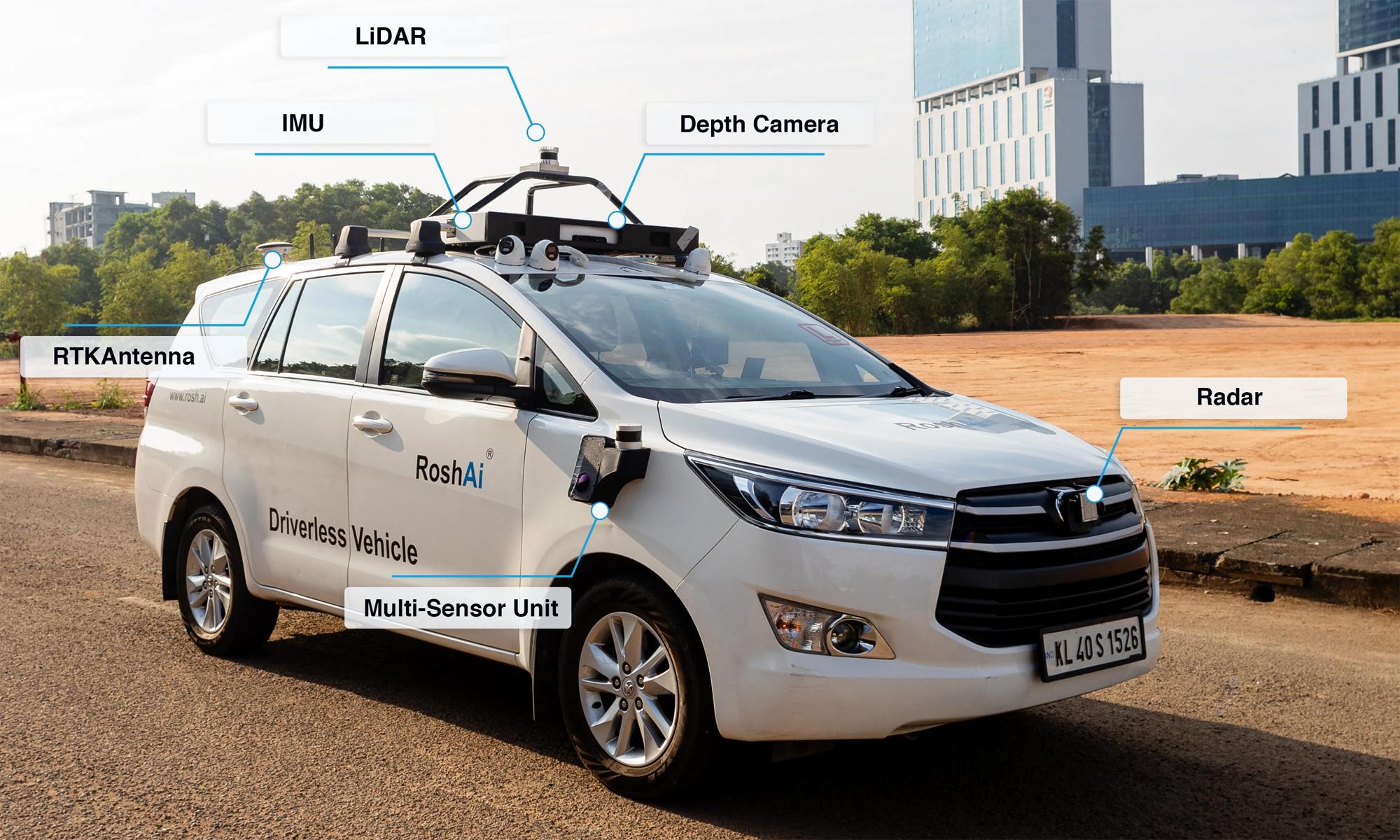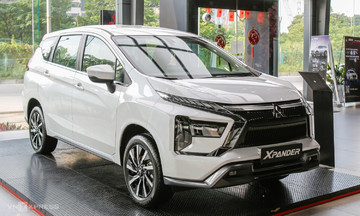Minister Gadkari emphasized that while self-driving car technology is advanced, India cannot afford to lose employment opportunities. The transportation sector employs an estimated 7 to 8 million people, including truck, taxi, auto-rickshaw, and private drivers. With limited alternative options in the informal economy, replacing these jobs with machines could cause widespread unemployment.
The minister connected his opposition to the larger challenge of unemployment in India. He pointed out that the unemployment rate for youth aged 15 to 29 was around 10% in 2022-2023. Introducing a technology that could eliminate millions of jobs would exacerbate this problem and disrupt livelihoods across the country.
 |
A Toyota Innova model equipped with self-driving technology developed by a private Indian company. Photo: RoshAi |
A Toyota Innova model equipped with self-driving technology developed by a private Indian company. Photo: RoshAi
At the same Delhi event last week, Gadkari stressed the importance of improving driver training processes to reduce road accidents. According to him, nearly 4,000 old vehicles are being scrapped each week due to poor conditions like faulty brakes. In addition, the government is expanding driver training centers, vehicle inspection centers, and scrappage centers to improve safety.
Gadkari believes trained drivers are still essential for safe road use. He argued that completely removing them would eliminate an important layer of oversight. He called on NGOs, schools, and social organizations to raise awareness about road safety, especially for students in grades 10 to 12, as changing human behavior remains key to minimizing accidents.
Global automakers like Tesla have expressed interest in the Indian market, but Gadkari insisted they must manufacture locally and cannot expect approval for fully autonomous vehicles. Critics argue this could slow India's access to next-generation automotive technology, but Gadkari maintains that India's economic and social conditions require a different approach than developed nations.
He also noted that India's road conditions make it difficult for autonomous vehicles to operate reliably. Unlike the controlled environments in countries testing self-driving cars, Indian roads have a mix of bicycles, bullock carts, motorcycles, cars, buses, and trucks, often without strict lane adherence. This complexity challenges even the most advanced vehicular algorithms.
Beyond job protection, Gadkari's argument relates to the broader economy. Millions of drivers not only earn a living from transportation, but also support household spending and local commerce. A sudden cut in these jobs could impact demand across sectors, dampening overall economic activity.
The minister also pointed out that other large markets remain cautious about adopting autonomous vehicles, with regulations and safety concerns slowing progress. In his view, India's policy of prioritizing jobs while gradually improving road safety infrastructure is a balanced approach.
My Anh (according to Cartoq)










